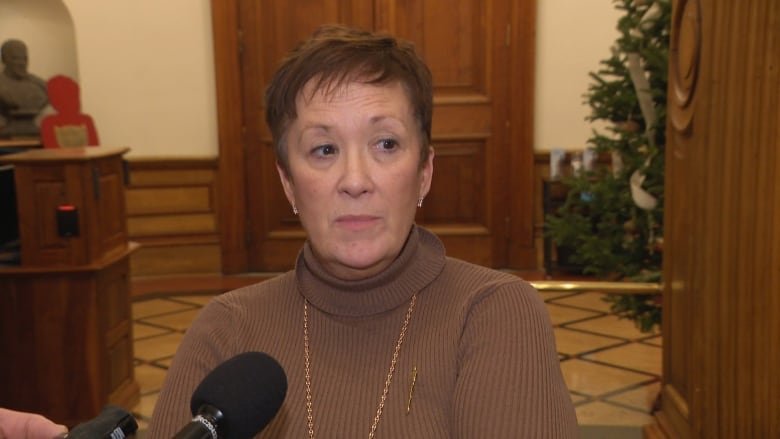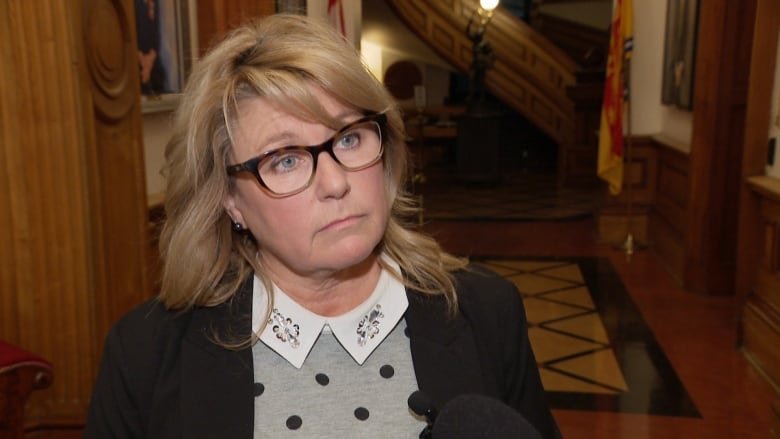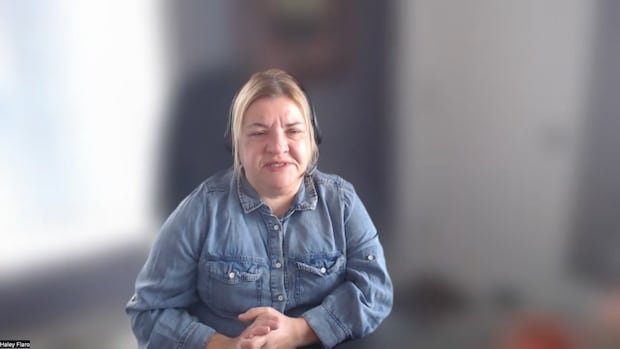Amid the ongoing Canada Post strike, a New Brunswick disability advocate is concerned about those who rely on mailed disability benefits.
“An issue that’s often forgotten in this type of event is our vulnerable populations,” said Haley Flaro, executive director of Ability New Brunswick.
“There’s still a significant number of New Brunswickers that don’t have internet access, can’t make online payments or apply to programs online.
“It’s impacting their ability to apply to programs. They have … disability benefits in the mail, and they don’t know where they are.”
Because of inflationary costs and growing poverty, Flaro said one thing that a lot of people have been cutting out is cell phones, which makes it difficult for some people to access their benefits.
Not everyone has internet access or a cellphone, Ability New Brunswick’s executive director says, so many people are wondering if their benefit applications will be processed during the Canada Post strike.
She said her organization has been hit with significant bills just trying to get people the information they need through Purolator.
“People haven’t stopped being diagnosed or experiencing hardships, you know, during this strike, and I think that’s really forgotten,” said Flaro.
Offer refused, union says
The Canadian Union of Postal Workers Atlantic Region said they have not forgotten about people who need cheques delivered.
A letter signed by Jeff Callaghan, CUPW Atlantic director, said the union offered to continue delivery of pension and social assistance cheques during the strike, but New Brunswick was one of several provinces to refuse.
Margaret Johnson, PC MLA and social development critic, said this came as a shock to her.

During Thursday’s question period in the legislature, she said was “dismayed” to hear that the Department of Social Development had advised people that, if they didn’t have direct deposit set up, they would need to make arrangements to collect their cheques at the regional office.
She said that during a time of financial insecurity, it wasn’t fair to ask someone from Juniper, for example, to go to Woodstock — about a 70-kilometre drive — to pick up their cheque.
Social Development Minister Cindy Miles responded, saying accommodation would be made to get cheques in the hands of those who needed them.
Speaking to reporters afterwards, Johnson said she believes Miles recognizes the decision was an error in judgment.
“[I] sincerely believe that she’s going to get back to us with some solutions,” Johnson said.
“The next cheque is not due until the first week of December. However, Christmas is coming and that’s a hard enough season. … You’re going to be talking about relying on friends that have cars … it really just once again establishes that stigma of requiring help and needing a leg up.
“We want to make sure that we maintain the dignity of our people, and we can’t ask them to have to be begging all the time for assistance.”

Miles told reporters she didn’t have an explanation for why the province may have denied the union’s offer to deliver the cheques.
But she said staff in the regional social development offices have been informed that if someone can’t pick up their cheque, staff will go to meet them.
She also said she’s willing and “more than happy” to go back and have another conversation with department officials to find the best approach forward.
“We want to meet folks where they’re at all the time,” she said.
Flaro wants to see something put in place to ensure basic access to mail for people, especially in New Brunswick, where she said there is a real “access to internet and technology gap.”
“I had a colleague in Ontario who said to me, ‘Well, everyone has internet access,'” Flaro said.
“And I went, ‘Really, have you been throughout the province of New Brunswick?'” There are some areas where even if people can afford it, they can’t get it, she said.
Ability New Brunswick will continue to help people who need it, she said, but it’s because they don’t have a choice.
“We’re not going to sit here and watch people go through hardship,” she said. “But I really don’t think that there’s an economic and social policy lens put on these issues.”



